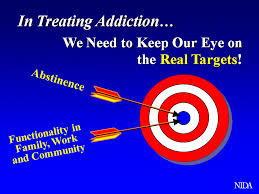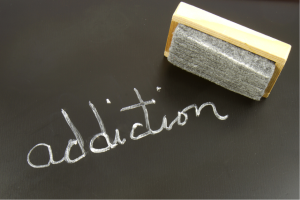Prevention of Relapse after Heroin addiction Recovery
Prevention of Relapse after Heroin addiction Recovery: What can be done within reach?

Prevention of Relapse after Heroin addiction Recovery forms one of the fundamentals of treatment of addiction
If only we could prevent all the harms that affect our wellbeing life could be very enjoyable. The society we live in is saturated with toxic pollution that even if you are not using any drug, your safety can not be guaranteed. If this is the position, then you can imagine the kind of life people who are addicted with drugs are living. It is one that you would not want to associate with if given a chance. But because we are not living in isolation we have a duty to care for our friends who are struggling with various kinds of addictions. Treatment then becomes a must for those affected and proper follow up thereafter. The process or practice of follow up is very important because besides being part of the treatment process, it is also a way of prevention of relapse after heroin addiction recovery or treatment. This article is going to dwell much on the prevention of relapse as a way of keeping healthy. Therefore we can say that relapse is generally the deterioration in someone’s state of health after a temporary improvement. Nevertheless in the context of addictive behaviors, a relapse would occur when the addict resumes his or her addictive behavior after a period of abstinence.
Experts at AWAREmed Health and Wellness Resource Center under the able leadership of doctor Dalal Akoury who is also the founder of the facility states that, for people who are trying to control their behavior rather than trying to quit entirely, a relapse is a period of uncontrolled behavior. Like for instance, for one trying to control his/her drinking, the occurrence of relapse could result in a session of binge drinking. In the same way when it comes to shopaholics who are trying to follow a spending plan, a relapse could be going on a shopping spree. In whichever way you look at it, relapse is not healthy. It takes you back several steps from the steps you have made in recovering from the bigger problem. Doctor Akoury explains that the way to prevent a relapse is to primarily recognize and deal with some of the elements that are likely to get in the way of recovery. Effective learning on how to overcome these challenges will go a long way in helping you to keep up the changes you’ve made during treatment. There are several things that a person can do to prevent relapse. And the following are some of the strategies that you may find helpful:
Prevention of Relapse after Heroin addiction Recovery: Identify a support system and stick to it
It is all about pooling together, what you know is not known by another and vice versa. It is therefore very important to surround yourself with people who are positive, those who loves, support and encourage you. Such people could come from your family, your friends, or your care providers. They will be there to help you when you are struggling with a difficult situation and experiences. I appreciate that opening up may not be very easy, however it is still very crucial that you should feel comfortable seeking for help whenever you need it. Some people find it useful to make a list of names and phone numbers to call if they start to slip back into old thought patterns or unhealthy eating behaviors.
Prevention of Relapse after Heroin addiction Recovery: Eliminate all negative influences
Try to get rid of any negative influences in your life. That includes people who make you feel bad about yourself or who constantly obsess about their own weight and appearance. Remember that your own thoughts can also be a bad influence. It is therefore very important that you learn on how to question any destructive thoughts you have about yourself. You could start by making a list of all of your good qualities and use it when you feel critical or pessimistic.
Prevention of Relapse after Heroin addiction Recovery: Get to know your Triggers
This is very important since you will be guided when there are indications of relapsing. Knowing your triggers is very helpful in defeating relapse since these are the biggest enemies of sustainability. A trigger is anything that can cause you to return to disordered eating or thoughts about disordered eating. Each person has their own triggers. They can include feeling stressed, anxious, depressed or lonely. Sometimes a traumatic experience, such as the death of a loved one can be a trigger. Some people are more likely to relapse at certain times of the year, such as during holidays or exams. To identify your triggers, think of times when you were tempted to relapse. Try to figure out what made you feel that way.
Prevention of Relapse after Heroin addiction Recovery: Prepare your coping plan
Make a list of different triggers that could cause you to relapse. Then, come up with a plan for dealing with each of these triggers in a healthier, more constructive way. Your coping plan might include calling a friend, taking a walk, or writing in a journal something that will destruct you from thinking of going back to your old habits.
Prevention of Relapse after Heroin addiction Recovery: Eat your meals regularly
A meal and snack schedule can prevent you from going back to disordered eating or even thinking of your drugs. Plan your meals and snacks ahead of time, and remember not to skip any. Take seriously taking the three meals a day plus snacks, at regular times (about every 3 hours). A consistent schedule will be good for both your emotional and physical health. Your family may be able to help by making sure that you don’t skip any of the three meals and also incorporating snacks in between.
Prevention of Relapse after Heroin addiction Recovery: Keep busy and stay involved
Creativity can be of help to you in keeping you busy. Your mind needs to be engaged in productive things. This will help you escape the temptation of getting back to the old habits. Activities which could help you engaged may include anything from arts & crafts, to volunteering, to nature walks, to joining a club. If you make time to do the things you enjoy, or to do nice things for others, your focus will shift away from your addictions and eating disorder. It can also help to keep you motivated to recover and to stay connected to your surroundings and the people in your community. Finally always seek for assistance from the experts from time to time. Doctor Akoury and her team of expert at AWAREmed Health and Wellness Resource Center will be there for you should you need any help.
Prevention of Relapse after Heroin addiction Recovery: What can be done within reach?




